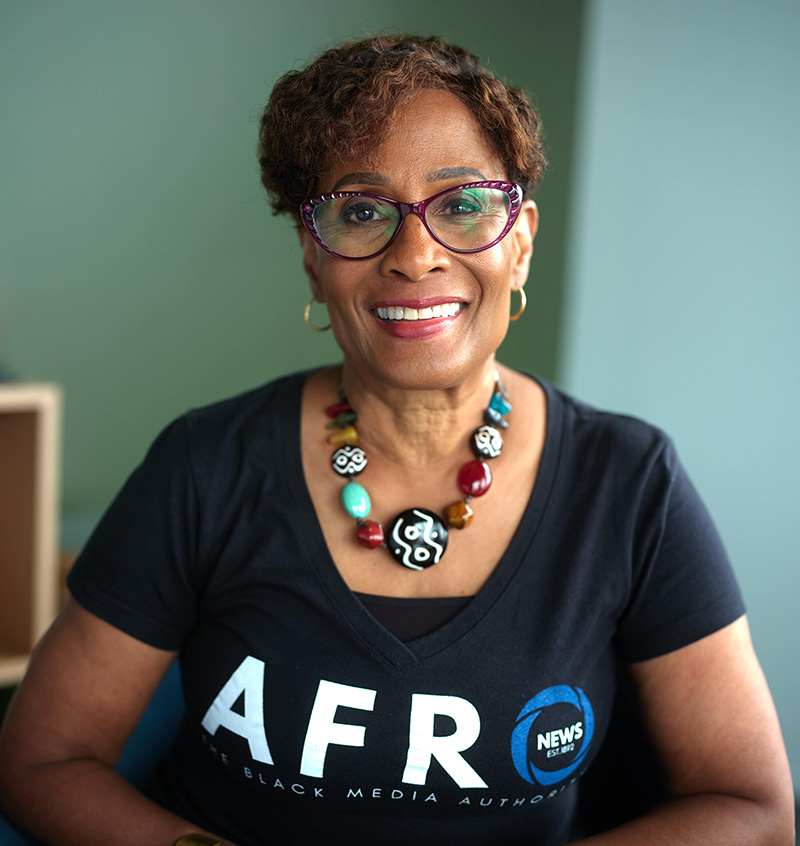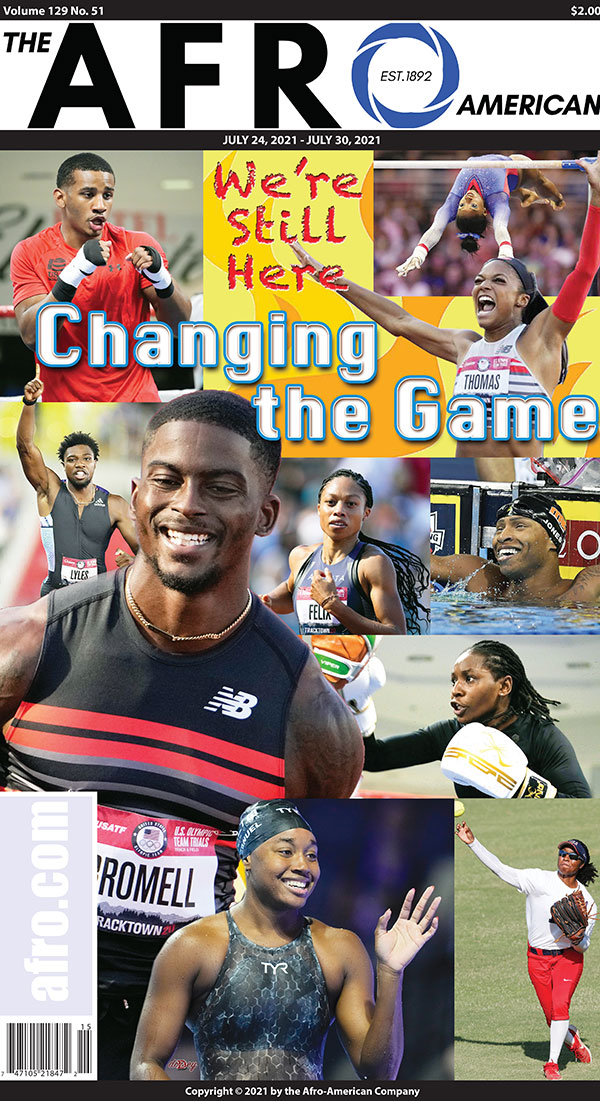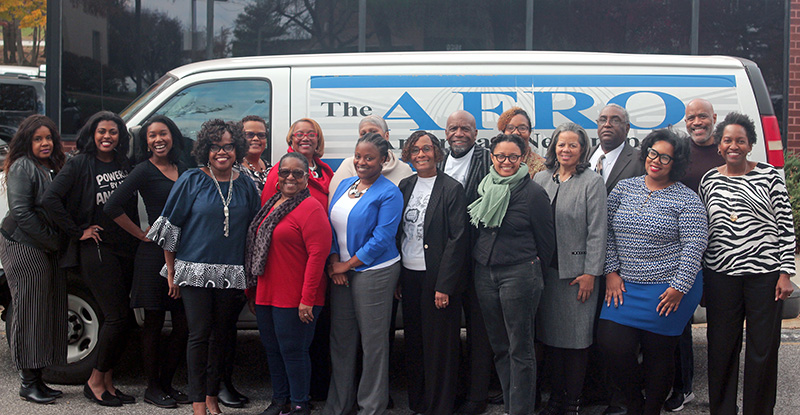Fortitude.
An iconic Black-owned news outlet in Baltimore finds new strength – and growth – through adversity.
AFRO News
ICIC Program:
Inner City Capital Connections (ICCC)
The media is a challenging industry in 2021, to say the least, as all formats – print, web, and broadcast – struggle to monetize news operations and meet rapidly-shifting consumer trends.
The pandemic did the industry no favors as thousands of newspapers, TV stations, and web-based media outlets had massive layoffs in 2020, while many shut down altogether. In all, United States newsrooms lost a record 16,000 jobs in 2020. Almost no media outlet was spared from the wreckage as layoffs hit The New York Times, ABC News, Fox News, Fortune, The New York Post, Buzzfeed, Vox Media and countless other news organizations.
But AFRO News, the nation’s oldest Black-owned media outlet, managed to not only keep its doors open, but it helped create a new coalition of Black-owned news organizations, pushed for legislation to support local journalism, launched podcasts, increased its social media following, hired reporters and is even preparing to move into new headquarters. How they’re doing it is by harnessing the power of its brand and building public and private partnerships.
“Our theme is we’re still here. We’re still here to report your news and we’re still relevant,” said AFRO publisher Dr. Toni Draper. “We all get our news through our devices, but we also know that the monetization of digital news is still being figured out, even by the larger organizations. We were already digitally focused, but the question is, how do we truly leverage that? It’s an opportunity.”

SOCIAL MEDIA GROWTH
AFRO has 10,000-plus followers on Instagram and more than 600,000 on Facebook.
Building a new legacy
Founded in 1892 by her great-grandfather, a freed slave and Civil War veteran named John Henry Murphy, who purchased the paper’s original printing press for $200. The weekly newspaper has been owned and operated by the Murphy family ever since and is the nation’s longest running African American-owned publication.
But legacy alone is not enough. The industry’s challenges were only exacerbated by what Dr. Draper calls a “tri-pandemic” that hit in 2020: political unrest from the presidential election, the COVID-19 crisis and the national uprising that followed the murder of George Floyd. While many media outlets folded under economic pressures that resulted from the chaos, AFRO strategized, innovated and adapted to build a better present and future.
“Out of tragedy comes opportunity and a lot of emphasis was put on Black businesses,” she explains. “We were able to pivot and do some things differently. Some things we were already planning. The delivery channels are constantly changing. When you’re small, you can be a little more nimble and change a little quicker.”
“The AFRO’s role is to be an advocate and a trusted voice for the community and report those things you won’t see other places.”
COLLABORATION
AFRO is one of 10 Black-owned newspapers participating in Word In Black, a news coalition that shares resources and content to deliver more news to a wider audience.
Innovation
Young reporters were added to the staff, which now numbers at 25. A third of the reporters are millennials or Gen Z and they’re social media and podcast savvy, including two journalists funded through grants. One reporter was hired through the federal Report for America program while another was hired to cover food deserts in Baltimore through the nonprofit Solutions Journalism Network.
They’ve launched a Black business beat that covers the small business landscape in Baltimore and Washington. They’ve created a daily interactive live news show called AFRO@Noon where reporters discuss news stories and events online. They have a popular weekly Facebook Live show called The Chicken Boxx where hosts discuss news, trends, culture, sports and more. There’s a new podcast called Pleasure Doing Business with You that focuses on Black entrepreneurs.
“We have a role in the community,” Dr. Draper explains. “It’s to be the purveyors and conveyors of local news about and for the community. The AFRO’s role is to be an advocate and a trusted voice for the community and report those things you won’t see other places.”
Dr. Draper and AFRO participated in ICCC’s Baltimore cohort in 2020, an experience she said was pivotal toward helping the media organization not only weather the tri-pandemic but find ways to build stability and grow long-term. AFRO was assigned a business coach from Bank of America. They participated in branding and marketing seminars with other professionals. They exchanged ideas with other business owners from a wide variety of industries. They evaluated each other’s websites, which was an invaluable exercise that has helped AFRO improve its online presence.
“You get to hear other people’s stories, even if they’re not in your industry,” she says of the program. “As fast as things are changing, I was really interested and committed to the program. It was really helpful.”

The future is bright
As AFRO approaches its 130th anniversary, Dr. Draper is looking toward the future, not only for the news outlet, but for the Baltimore community. AFRO has been granted rights to redevelop an historic city building that has been abandoned since 2006. The two-story brick Upton Mansion, built in 1838, is the last standing Greek revival building in Baltimore and sits on one acre of land in a blighted area of the city. The neighborhood is the city’s former arts district that was once home to Cab Calloway and Billie Holliday. It’s where AFRO was born.
Dr. Draper is working with a variety of public and private partners to restore the stately home, which is on the National Register of Historic Places, and convert it into AFRO’s newsroom and business headquarters. It’s a long project but one that Dr. Draper believes will be transformative for the neighborhood, the city and Black-owned media.
“It’s in an area that’s suffered a lot of neglect. But the city and the community are committed,” she says. “We want to be an anchor and hopefully draw some more investment to the area.”
They’re also in the process of digitizing the paper’s complete collection of print editions, as well as its voluminous photo and audio archives. The paper has three to four million print photographs of countless historical events in Washington, Baltimore and beyond, as well as recorded speeches and conversations with the likes of Martin Luther King and Thurgood Marshall. It’s living history and AFRO is working hard – and smartly – to preserve it all for future generations.
“I’m optimistic about our future,” Dr. Draper says. “The industry has gone through a lot of transition. And there’s a lot of transition to go. However, when I look through the history of the AFRO, who would have thought a formerly enslaved person could start a business in the late 1800s that would still be alive today?”
“While the delivery of the news has changed dramatically, the need for the news has not changed. There has to be outlets that are committed to covering our communities and empowering our communities through that coverage,” she adds. “The future is bright because the need for news is still there. The need for advocacy and the need for truth is still there.”
